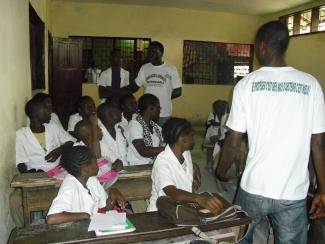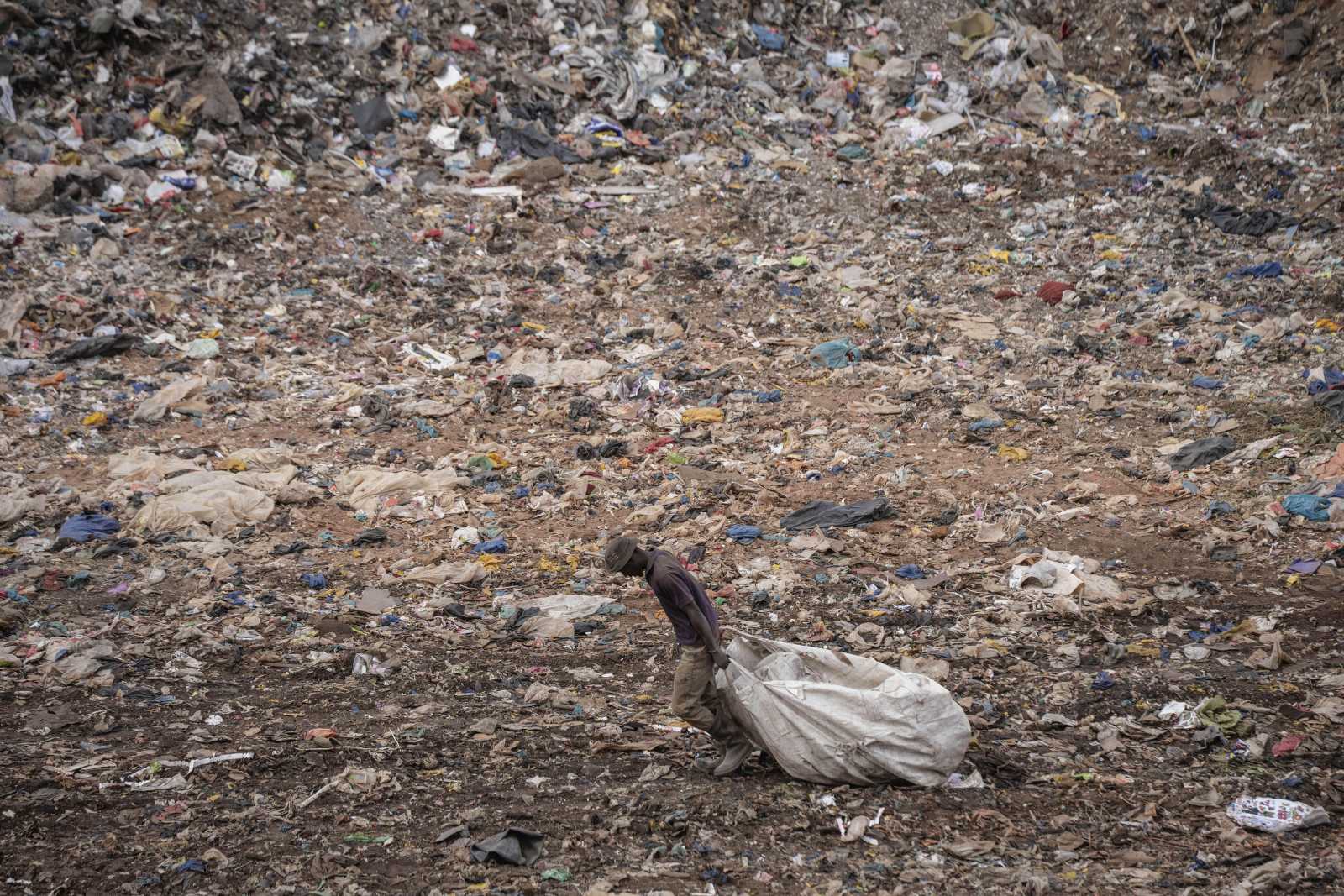Teenagers
Information in strong demand

The school was in Adwa, the central business district. Up to 80 students were crowded into small classrooms. It was noisy and hot. In this setting, eight of us took up work.
With students of all age groups, we discussed topics like puberty, the male and female bodies, teenage pregnancy, risks of abortion, venereal diseases and contraception. In “causeries éducatives” (educational chats) we answered the questions the students came up with. We talked about plastic bags being no substitute for condoms or about some teachers demanding sexual favours from girls and threatening to give them poor grades. We discussed the fate of friends who suffered from HIV/AIDS and or girls who had not been seen in school anymore ever since it became known that they were expecting a child.
In Douala, teenagers who get pregnant cannot finish school. They struggle to ever find a vocational perspective. This fate is typical of the young women who turn to DUCA for advice and help. Many of them have several children, and bear the entire responsibility for them. If they are lucky, some relatives will be willing to look after their offspring from time to time so the young mothers can get some kind of training.
In Cameroon, young people normally do not know much about health and contraception. Neither parents, nor schools, nor anyone else informs them about sex in a competent way. The topic is taboo in families, and schools do not put it on the agenda. One reason for this state of affairs is the church’s insistence on abstinence. The kids take their information from where they get it, relying on friends and the internet, for instance.
At school, we invited the students to hand in written questions anonymously, and then discussed these topics openly. Many were worried about being tested for HIV/AIDS and other venereal diseases, and many did not know their health status. Only few had undergone tests. Most were neither aware of what disease symptoms are nor of what infected people should do. Other popular questions concerned to what extent it was necessary to stay true to a partner or the downsides of polygamy, which is still quite common in Cameroon.
Some youngsters were interested in advice on how to stay abstinent long term. The intention is fine, but it does not make sense to preach abstinence as the only option. If such preaching worked, there would not be so many teenage pregnancies.
Teenagers obviously become sexually active quite early in Cameroon. Because they have no understanding of their biology and of possible consequences, many of them unwittingly run serious risks. DUCA argues that sex education is necessary in spite of the church’s stance. To judge by the students’ strong demand for information, DUCA’s approach is correct.
Marie Pardey was a volunteer with the non-governmental organisation DUCA in Douala from August 2011 to August 2012, sponsored by the German government’s “weltwärts” programme. Marie.Pardey@gmx.de














